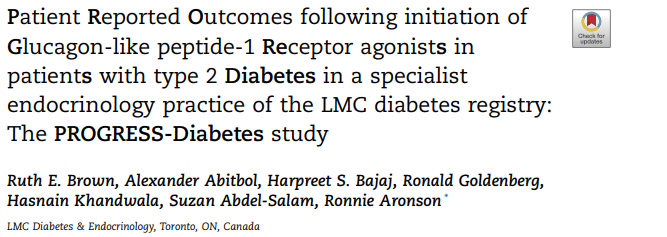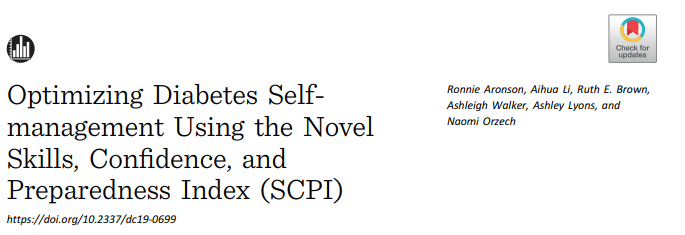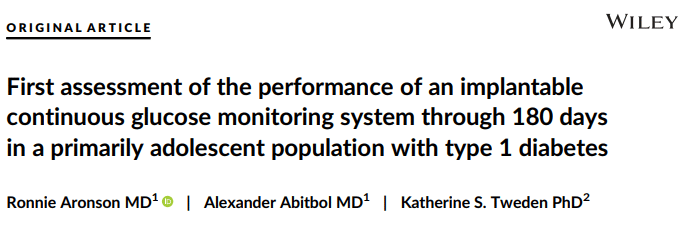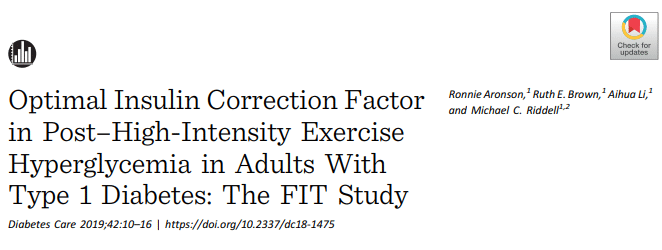Publications
2019

This study evaluated real-world clinical outcomes of patients with type 1 diabetes (T1D) and type 2 diabetes (T2D) initiating or transferring to insulin glargine 300 U/mL (Gla 300) vs insulin glargine 100 U/mL (Gla-100).
The aim of this study was to compare patient-reported outcomes and clinical outcomes in patients who initiated dulaglutide or liraglutide as part of usual clinical therapy.


The Skills, Confidence, and Preparedness Index (SCPI) is an electronic tool designed
to assess three dimensions (knowledge, confidence, and preparedness) in a
clinically relevant measure, with immediate feedback to guide the individualization
of patient education. This study sought to assess the validity and reliability of the
final SCPI generation, its relevance to glycemia, and its responsiveness to patient
education.
The aim of this study was to assess the reliability of self-perception of glycemia during high-intensity interval training (HIIT) in subjects with type 1 diabetes (T1D).


Hypomagnesemia (serum magnesium [Mg] b0.74 mmol/L [b1.8 mg/dL]) is commonly observed in patients with type 2 diabetes (T2D). This study investigated the effect of treatment with dapagliflozin 10 mg on Mg concentrations in patients with T2D.
The aim of this study was to investigate the performance of the Eversense XL implantable continuous glucose monitoring (CGM) system through 180 days in a primarily adolescent population with type 1 diabetes (T1D).


Postexercise hyperglycemia, following high-intensity interval training (HIIT) in
patients with type 1 diabetes (T1D), is largely underrecognized by the clinical
community and generally undertreated. The aim of this study was to compare four
multipliers of an individual’s insulin correction factor (ICF) to treat post-HIIT
hyperglycemia.
Patients with type 1 diabetes (T1D) often report a rise in their blood glucose level
following brief intense exercise. We sought to determine the reproducibility of the
cardiometabolic responses to high-intensity interval training (HIIT).


This study investigated the accuracy of real-time continuous glucose monitoring (rtCGM) during high intensity interval training (HIIT) in patients with type 1 diabetes (T1D).
